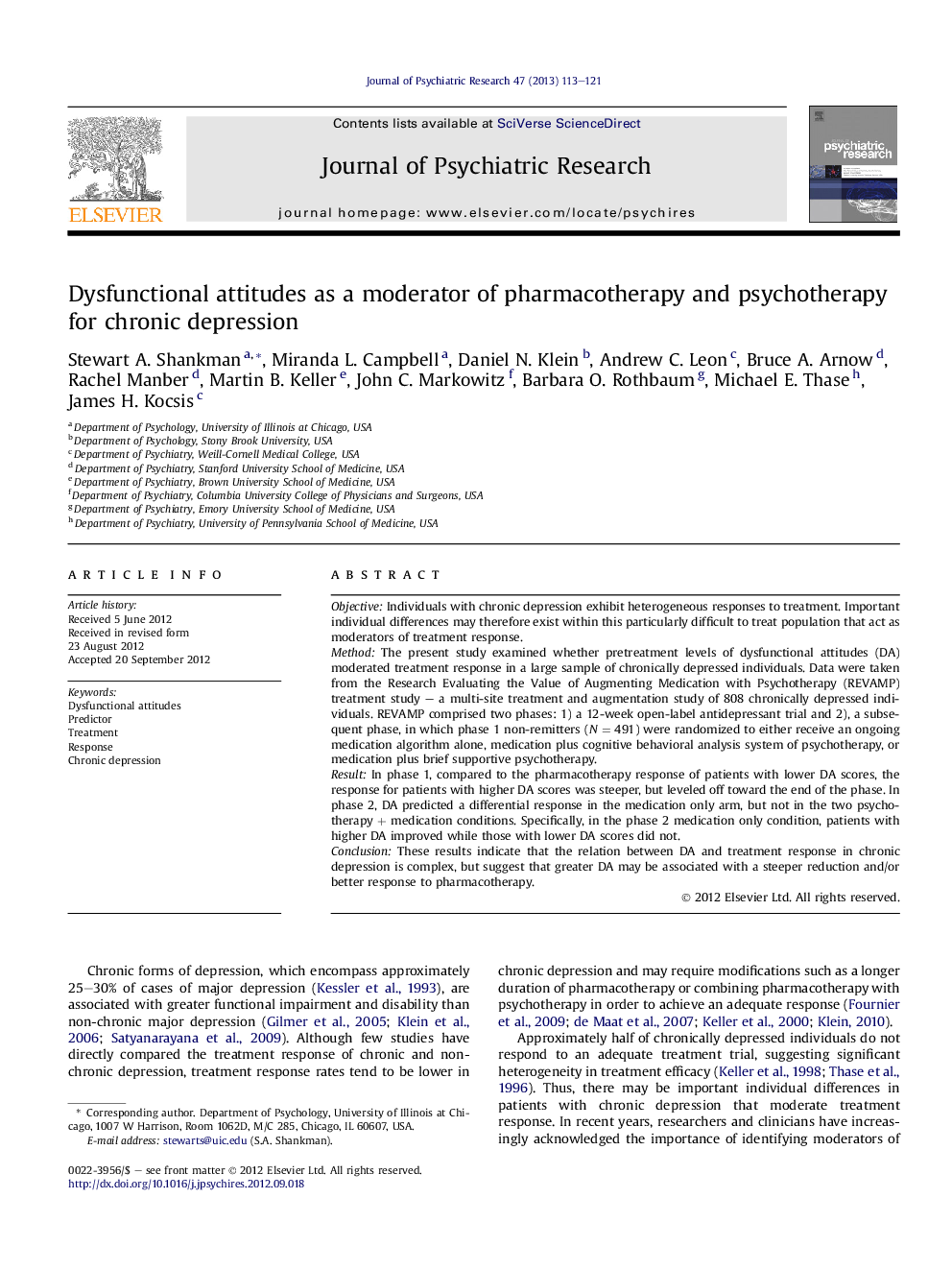| Article ID | Journal | Published Year | Pages | File Type |
|---|---|---|---|---|
| 327684 | Journal of Psychiatric Research | 2013 | 9 Pages |
ObjectiveIndividuals with chronic depression exhibit heterogeneous responses to treatment. Important individual differences may therefore exist within this particularly difficult to treat population that act as moderators of treatment response.MethodThe present study examined whether pretreatment levels of dysfunctional attitudes (DA) moderated treatment response in a large sample of chronically depressed individuals. Data were taken from the Research Evaluating the Value of Augmenting Medication with Psychotherapy (REVAMP) treatment study – a multi-site treatment and augmentation study of 808 chronically depressed individuals. REVAMP comprised two phases: 1) a 12-week open-label antidepressant trial and 2), a subsequent phase, in which phase 1 non-remitters (N = 491) were randomized to either receive an ongoing medication algorithm alone, medication plus cognitive behavioral analysis system of psychotherapy, or medication plus brief supportive psychotherapy.ResultIn phase 1, compared to the pharmacotherapy response of patients with lower DA scores, the response for patients with higher DA scores was steeper, but leveled off toward the end of the phase. In phase 2, DA predicted a differential response in the medication only arm, but not in the two psychotherapy + medication conditions. Specifically, in the phase 2 medication only condition, patients with higher DA improved while those with lower DA scores did not.ConclusionThese results indicate that the relation between DA and treatment response in chronic depression is complex, but suggest that greater DA may be associated with a steeper reduction and/or better response to pharmacotherapy.
